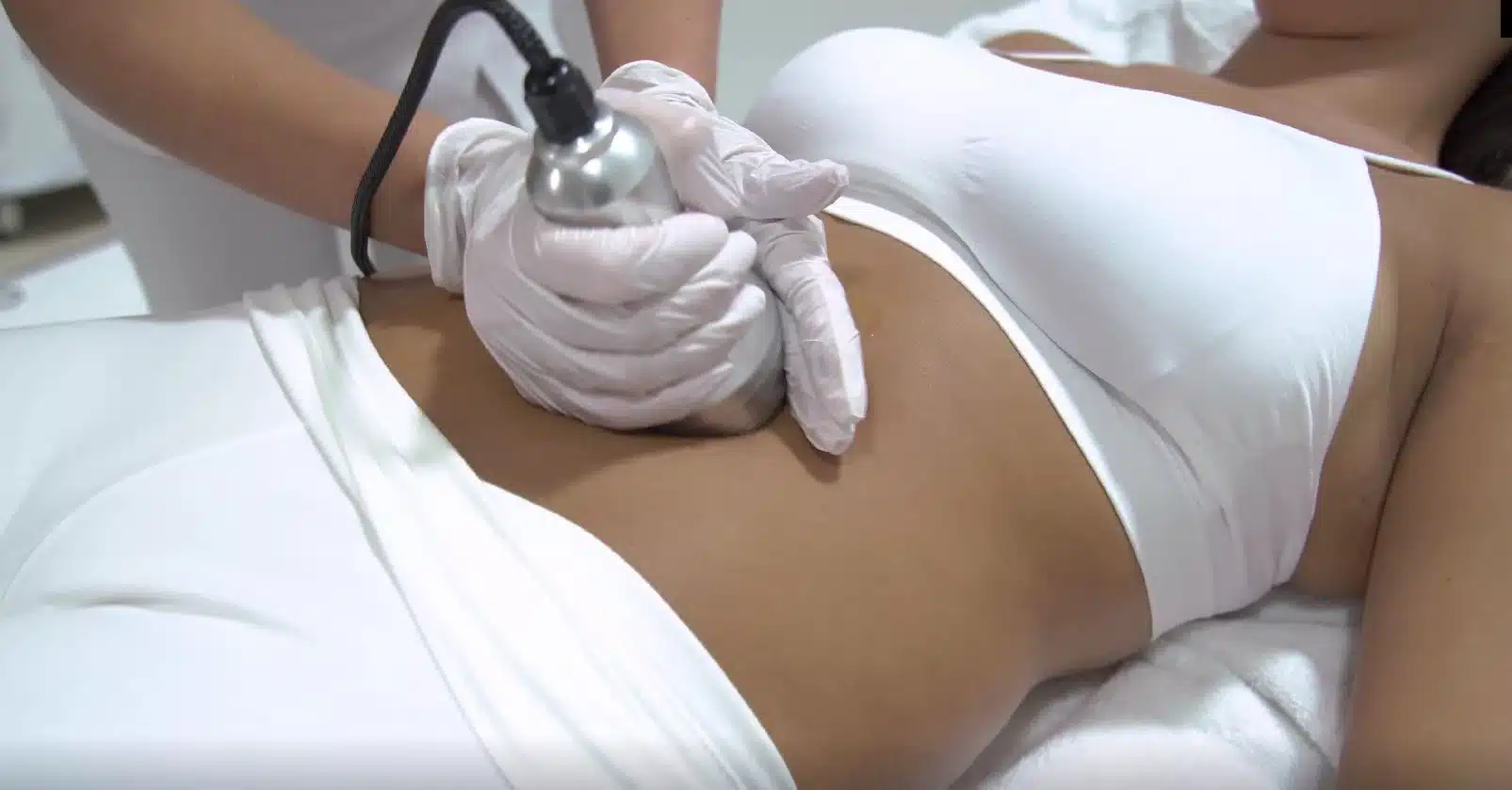Ultrasonic cavitation is a popular way to reduce fat without surgery. This article will look at how safe it is, using science and expert advice.
It’s important to know about any risks and side effects of ultrasonic cavitation before you try it.
Table of Contents
Is ultrasonic cavitation safe?
Ultrasonic cavitation is generally safe with few risks. Side effects like bruising or redness can happen but usually go away on their own. There’s a slight chance of lumps or unevenness in the treated area. If you’re worried about these issues, talk to your doctor.
The treatment should be painless and relaxing for most people, but some may feel discomfort. Make sure to choose an experienced provider with modern equipment for safety.

Ultrasonic Cavitation Risks
Ultrasonic cavitation is an FDA-approved procedure, but like any cosmetic treatment, it has potential risks. Here are some common ones:
-
Bruising or Redness: You may notice skin bruising or redness shortly after the treatment.
-
Pain or Discomfort: Some patients might feel pain or discomfort, depending on where the sound waves are focused.
-
Skin Sensitivity: Skin sensitivity can occur due to the cavitation gel and ultrasound. It may lead to itching or swelling, but these usually go away in a few days.
-
Headaches: You might experience mild headaches as your body eliminates toxins. Staying hydrated and exercising can help speed up this process.
Keep in mind that these risks can vary from person to person and depend on the procedure. It’s a good idea to consult with a healthcare expert before starting any new treatment.
Learn more: Side Effects of Ultrasonic Cavitation Machine
How to Use an Ultrasound Cavitation Machine Safely
-
Use by Trained Person: If you’re using a cavitation machine at home, read the instructions well. Make sure you understand how to use it. In a treatment center, check that your therapist is licensed.
-
Use on Specific Body Areas: This machine works best on parts of the body with fat like thighs, hips, and belly.
-
Right Energy Levels: Adjust the ultrasound wave intensity for the thickness of the fat and skin sensitivity. Home devices usually have a lower energy level.
This video will show using an 80k cavitation machine on the belly in a professional spa setting.
Learn more: How to Use Ultrasonic Cavitation Machine
Who Should Avoid Ultrasonic Cavitation
-
Under 18: If you’re younger than 18, it’s not recommended.
-
Pregnancy and Epilepsy: Pregnant women and those with epilepsy should steer clear.
-
Health Conditions: If you have cancer, diabetes, or high blood pressure, it’s best to avoid ultrasonic cavitation.
Can Ultrasonic Cavitation Cause Cancer?
No, there’s no evidence that ultrasonic cavitation causes cancer or raises the risk of getting it. However, people with cancer or those getting chemotherapy or radiation therapy may have some contraindications. Also, some cancer types with metal implants could be affected by the procedure.